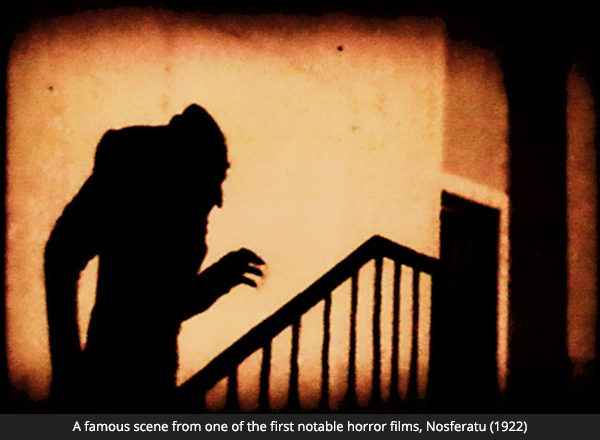Tapping Into Our Primal Fear: How the Right Music Heightens Our Sense of Fear
By Brady Ellis
Over the last century of cinema, filmmakers and composers have perfected the use of music in horror films to heighten our sense of suspense and terror. But there’s more science to it than anyone imagined. You see, there’s something special that happens in our brain when hear the screeching violins of Bernard Herrmann’s score for “Psycho” or John Williams ominous crashing chords in the theme for “Jaws.” Research shows that certain types of sounds trigger deep, primal fear that is hard-wired into our brains for the sake of our own survival. Researchers believe that these harsh, discordant, and unexpected sounds trigger this reaction in our brain because they imitate the screams of frightened animals.
In a 2010 study at the University of California, Los Angeles, led by Professor Daniel Blumstein, researchers evaluated the soundtracks of 102 of the most popular movies of all time – from war films and dramas, to horror movies and adventure flicks. Researchers looked at a class of sounds called ‘non-linear’ sounds. These range from the sort of distorted notes that come from a sound system turned up too high, to the squeal produced by blowing too hard into a trumpet.
“Nonlinearities are commonly produced when animals are under duress, such as the fear screams produced when animals are attacked by predators”, the study reported. “In mammals, and possibly also in birds, when you push too much air through your larynx you produce these non-linear sounds and it’s a pretty unbluffable signal of fear”, Blumstein said.
The study looked at the music in films, as well as special effects and screams. The analysis showed that the audio from horror films contained the most noisy (atonal) female screams – while adventure films had the most screams from men. Horror films also had a higher than expected number of abrupt shifts up and down in pitch, he reported in the Royal Society Journal Biology Letters, where the study was published.
So there you have it. For decades, composers have been instinctually leveraging non-linear sounds to amplify our sense of fear and make horror and action films even more impactful. Now we have a scientific explanation for why these sounds elicit such strong emotions. We should consider what else we can learn from neuroscience about how our brains work to help us enhance the experience anywhere music and sound design can be leveraged.




